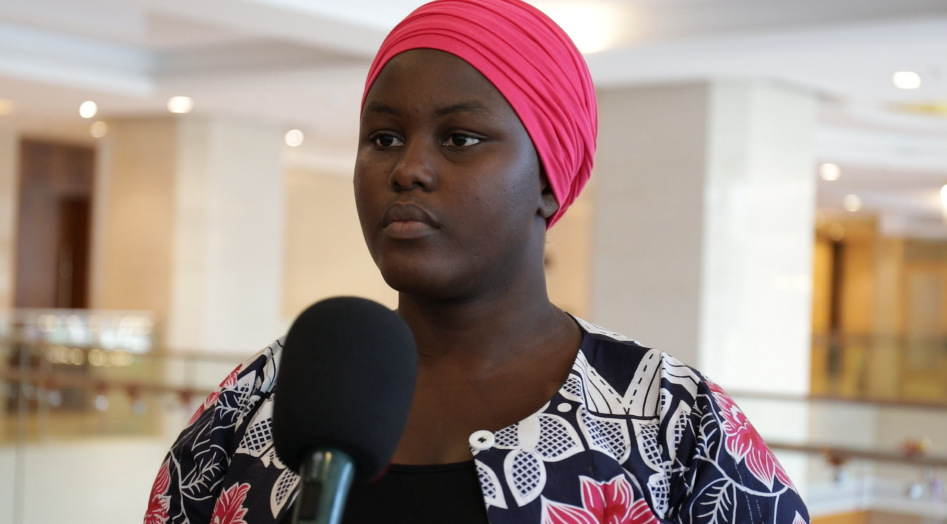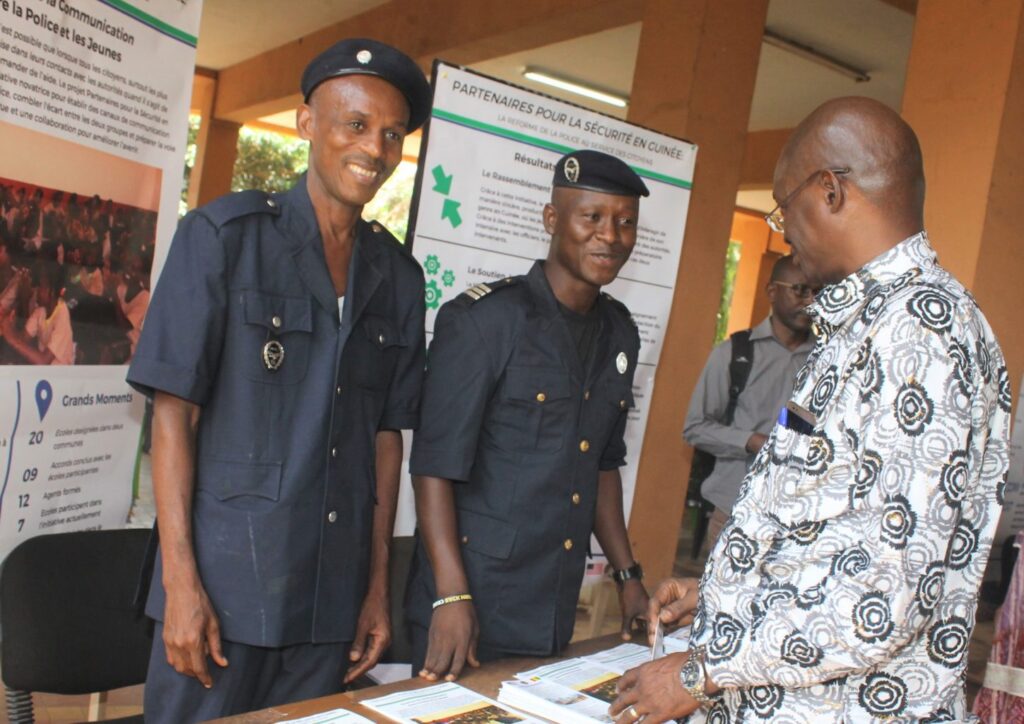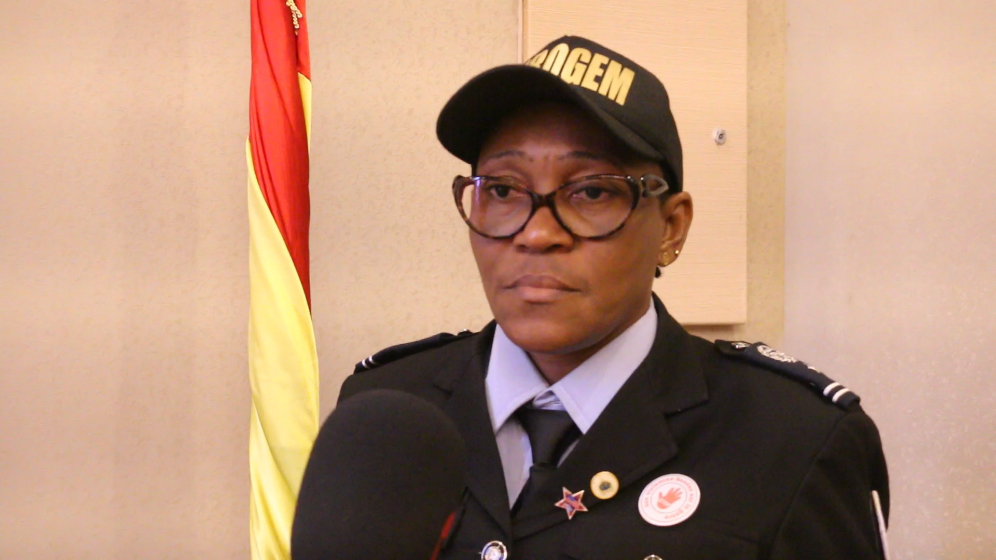In Guinea, citizens become “actors in their own security”
May 26, 2020
Mariame Sow is just 19 years old, but she’s been advocating for the rights of women and girls in Guinea for nearly half her life. As part of the Young Women Leaders Club of Guinea, she and fellow activists serve as a lifeline for women and girls facing violence, abuse or forced marriage, all of which are illegal in the country.

Until recently, though, Mariame says her efforts to protect women and girls often unfortunately fell short, not for lack of commitment, but because she didn’t have the backing of police.
“We were poorly received, and we were being abused ourselves! We’ve often been slapped and were rejected,” she explains.
Today, women and girls in Conakry, where Mariame lives, and across the country have a powerful ally in law enforcement. Mariame says she sees local police as an invaluable partner to her mission.
“When we received the training from local police, we were able to make ourselves known to the Office of Protection of Gender, Children and Morals and become a partner for them…These new community policing units are essential for us! They are always available to us whenever we need them.”
In a recent case, a teenage girl contacted Mariame’s group to escape an upcoming arranged marriage to an older man. The girl wanted to remain in school, but her father was adamant she be married. The family refused to heed the warning of the Young Women Leaders Club of Guinea, until the group turned to the local police for backing. The father acceded, allowing his daughter to finish school and postpone the marriage.
Meeting a security need
Mariame’s experience in not unique. Over the past five years, in six regions of Guinea, police have increasingly moved from being distrusted by citizens to being seen as reliable allies of marginalized groups, youth, and the general population.
Behind this transformation is a national approach to improve police effectiveness and build citizen-police trust through more officer training, community-based policing, and positive community-police interactions. Spearheaded by the Ministry of Security and Civil Protection, these efforts are part of the Partners for Security in Guinea program.

While government investment in the security sector writ large has climbed in recent years, little investment has gone to reforming police and developing a credible and capable police service. Ineffective policing coupled with rampant police corruption led to distrust of police among citizens.
The five-year Partners for Security in Guinea project is working to turn this tide by improving relationships between police and communities so they can work together to address security challenges.
Operating in Conakry and the regions of Kindia, Mamou, Labe, Kankan and Siguiri, the program supports the establishment of community-oriented policing through a two-pronged approach:
- Strengthening institutional capacity of the Guinea National Police and its leadership through training and institutional support; and
- Building community trust in police and increasing their awareness of the police and the community’s security rights and responsibilities.
Now in its final year, the Partners for Security in Guinea project has trained more than 1,600 police officers in community policing, administration and coordination of police services. It has supported the National Police in substantial reforms to make services more streamlined and accessible and facilitated ongoing community-police interaction and structures such as crime prevention councils. The program’s Community Safety Fund is supporting innovative local crime prevention initiatives across the country.
The project is funded by the U.S. Department of State’s Bureau of International Narcotics and Law Enforcement Affairs. It is implemented by a consortium led by PartnersGlobal and including COGINTA, CECIDE and Partners West Africa Senegal.
Community outreach leads to trust in police
Building citizens’ trust in police doesn’t happen overnight nor does it happen from a distance.
To earn people’s confidence, the Guinea National Police has focused on sustained engagement at the community level in schools, community meetings, with women’s and youth groups, and with local leaders. Through its school outreach initiative, police forces visited 27 schools and met with nearly 11,000 students.
At all of these sessions, officers get to know citizens, conversing about people’s security concerns or engaging in soccer matches, and spend time educating citizens on their rights, how to report a crime, and what they can expect in return form police. Police have even appeared on local TV and radio shows with these messages.
The government has also decentralized security, prioritizing local police units embedded in communities and giving local officers the skills and tools to support citizens. Anti-corruption training is an essential topic in training.
On the community side, local leaders have stepped up as well, recognizing the important role citizens play in keeping communities safe. Every community where the project works now has a Crime Prevention and Community Security Committee, which works hand in hand with community police and helps facilitate police-community cooperation.
All these efforts have added up to a noticeable improvement in community security. Dondon Dansoko, Central Commissioner of the Municipality of Dixinn in the capital region of Conakry, says he’s seen a substantial change in how the citizens perceive and interact with the police. He recounts:
“There had been a real crisis of confidence since 2010. But the approach of creating a local police force was the solution to reconnect with the population. Before, it was the police that went to the population: today, it is the population that goes to the police…. On the police side, there is a marked improvement in the way the work is done.”
Kadiatou Diallo, Secretary General of Dixinn, adds, “We have succeeded in making the public understand that the police are not an adversary, nor an enemy, but a security partner.”
A long-term priority
At the national level, Partners for Security in Guinea is improving trust and cooperation of another kind—among government agencies.
Marie Gomez, Deputy Director of the national Office of the Protection of Gender, Children and Morals says her office can now work more effectively with other police units and officials to report crime and better protect vulnerable populations. She explains:
“When we have a criminal offense, we are required to arrest the presumed perpetrator…More often than not, when we send the summons, the person does not want to come. As soon as we see this, we then go to the local elected officials and neighborhood leaders. And since they too have received training, they bring the person arrested to us.”

Though Partners for Security in Guinea is coming to an end soon, the Minister of Security and Civil Protection Albert Damantang Camara says police reform and community-police trust will remain a priority, especially given the achievements so far. He says:
“This program allows Guineans to get closer to their police, which had not happened in a long time. It allows young people and women to express themselves and their concerns easily with police officers. It allows referring police officers to speak to students. In a nutshell, this project allows Guineans to become actors of their own security.”
Interviews by Isabelle Gayrard Auzet.
